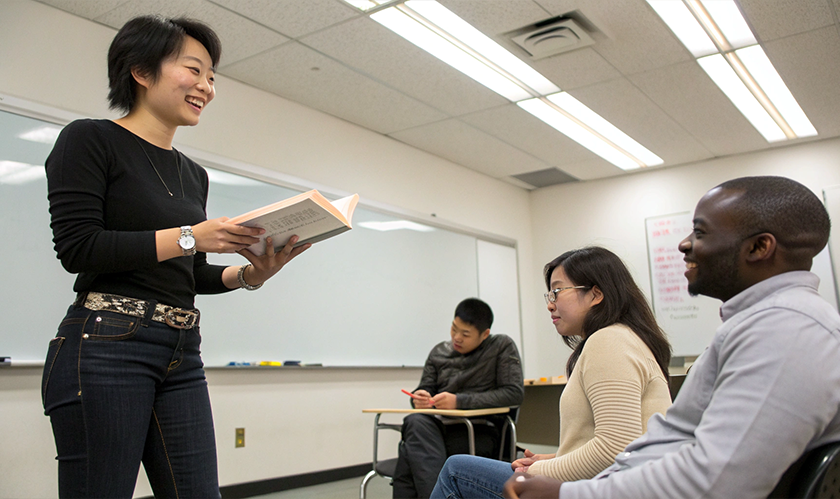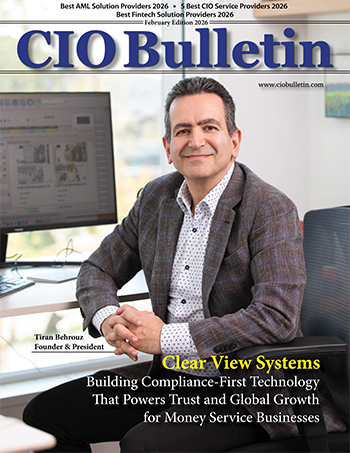Home Industry E learning Where Can You Find Japanese Tu...
E Learning

CIO Bulletin
10 November, 2025
Learning Japanese in New York offers many opportunities, whether someone wants to improve conversation skills, prepare for a language exam, or connect with Japanese culture. The city’s mix of cultures makes it easy to find teachers who match different learning styles and goals. You can find Japanese tutors across New York through local language schools, private instructors, and online platforms that connect students with native speakers.
Many tutors in the city bring years of teaching experience and tailor lessons to fit beginners, advanced learners, or those studying for the JLPT. Some offer flexible schedules and one-on-one sessions in person or online, making it simple to fit lessons into a busy routine.
With so many choices available, it helps to know where to look and what to consider before starting lessons. The following sections explain where to find qualified tutors in New York and how to choose the one that fits each learner’s goals and learning style.
Learners in New York can study Japanese through online lessons, private tutors, or structured classes at language schools. Each option offers different benefits in cost, flexibility, and learning style.
Online tutoring gives students flexible scheduling and access to teachers from Japan and around the world. Many learners choose 1-on-1 Japanese tutors in New York to receive personalized lessons that match their goals and level.
These platforms often list hundreds of certified tutors with hourly rates starting around $10 to $20. Students can view teacher profiles, watch introduction videos, and read reviews before booking a session.
Online lessons usually take place through video chat. Tutors share digital materials such as grammar notes, vocabulary lists, and pronunciation guides. This format works well for busy adults or students who prefer learning from home.
New York offers many private tutors who teach face-to-face in homes, libraries, or cafés. These sessions often help students improve speaking confidence through real-time conversation and feedback.
Hourly rates for in-person lessons vary, often ranging from $35 to $90 depending on experience and location. Some tutors specialize in test preparation, such as the JLPT, while others focus on travel or business use.
Meeting in person can help learners practice cultural etiquette and body language that are harder to grasp online. It also encourages consistent practice through scheduled sessions.
Several language schools in New York provide structured Japanese programs for all levels. Many offer small group classes, cultural workshops, and placement tests to match students with the right level.
Institutions often hire native speakers with teaching certificates. Classes may include reading, writing, and speaking exercises, along with lessons about Japanese customs and traditions.
Some schools allow students to switch between group and private lessons. This flexibility helps learners balance cost and personal attention while following a steady curriculum.
Finding the right tutor depends on the learner’s goals, schedule, and comfort with different teaching methods. A good match helps students stay motivated, build confidence, and make steady progress in learning Japanese.
Japanese lessons can take several forms. Private one-on-one tutoring offers personal attention and lessons that adapt to the student’s pace. Group classes create a social environment where learners can practice conversation and listening skills with others.
Some tutors teach online lessons using video platforms, while others meet in person at homes, libraries, or study centers. Online learning often suits busy adults, while in-person sessions may benefit younger learners who need structure.
Many tutors also provide specialized lessons, such as preparation for the Japanese Language Proficiency Test (JLPT) or lessons focused on travel, business, or daily conversation. Students should think about their learning style and schedule before choosing a format.
|
Lesson Type |
Best For |
Common Features |
|
Private |
Personalized goals |
Flexible pace |
|
Group |
Conversation skills |
Peer interaction |
|
Online |
Busy schedules |
Convenience |
|
In-person |
Structured learning |
Direct feedback |
A qualified tutor often has formal training in teaching the Japanese language or holds a teaching certificate. Some may have completed a Japanese teacher training program or studied linguistics.
Native speakers bring strong cultural and conversational knowledge, while bilingual tutors can explain grammar in English more clearly. It helps when a tutor understands both Japanese culture and common challenges for English-speaking learners.
Students preparing for the JLPT should look for tutors familiar with the test’s structure and vocabulary levels (N5 to N1). Asking about a tutor’s teaching experience, language background, and past student results can help identify a good fit.
Many tutors offer a free trial lesson or a short paid session before regular lessons begin. A trial gives students a chance to see the tutor’s teaching style, pacing, and how comfortable they feel during the session.
Flexible scheduling allows learners to balance lessons with work or school. Some tutors provide weekly sessions, while others let students book as needed.
Tutors who offer customized lesson plans can adjust materials based on progress, interests, or specific goals, such as speaking practice or writing kanji. This flexibility helps maintain steady improvement without unnecessary pressure.
People study Japanese for different reasons. Some want to pass the JLPT for academic or career purposes. Others want to learn conversational Japanese for travel or to connect with Japanese friends or family.
Students interested in Japanese culture—such as anime, food, or traditional arts—may prefer tutors who include cultural topics in lessons. Business learners might focus on formal speech, polite expressions, and writing professional emails.
Choosing a tutor who understands these goals makes lessons more meaningful. Clear communication about what the learner hopes to achieve helps the tutor design lessons that match both interest and purpose.
Finding a Japanese tutor in New York is straightforward with the wide range of in-person and online options available. Students can choose from private one-on-one sessions, group classes, or virtual lessons that fit their schedules and learning goals.
Many tutors bring years of teaching experience and cultural knowledge, helping learners build both language skills and cultural understanding.
When selecting a tutor, it helps to compare experience, teaching style, and flexibility. A short trial lesson can also make it easier to decide if the tutor’s approach fits the student’s needs.
With thoughtful selection, learners can find a tutor who supports steady progress and makes studying Japanese an enjoyable part of their routine.

Insurance and capital markets







